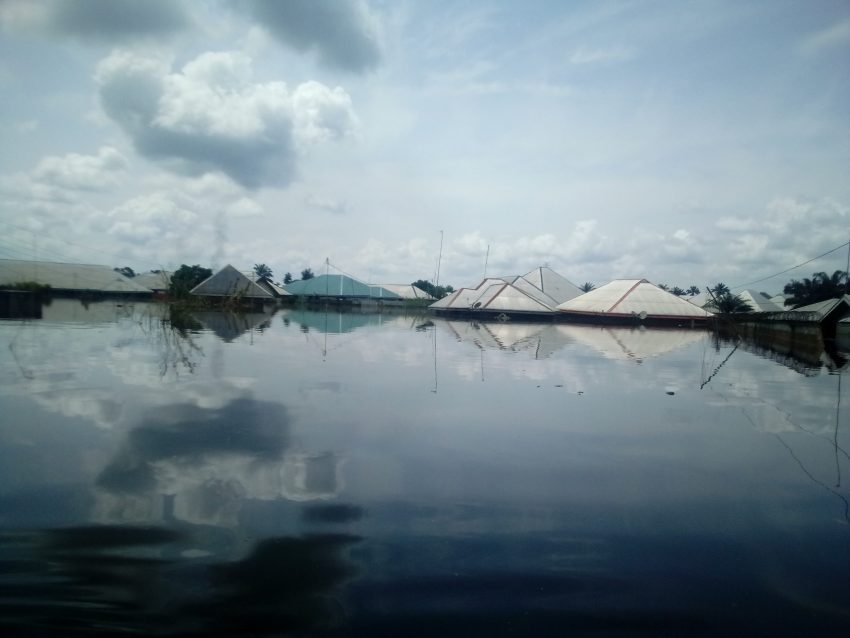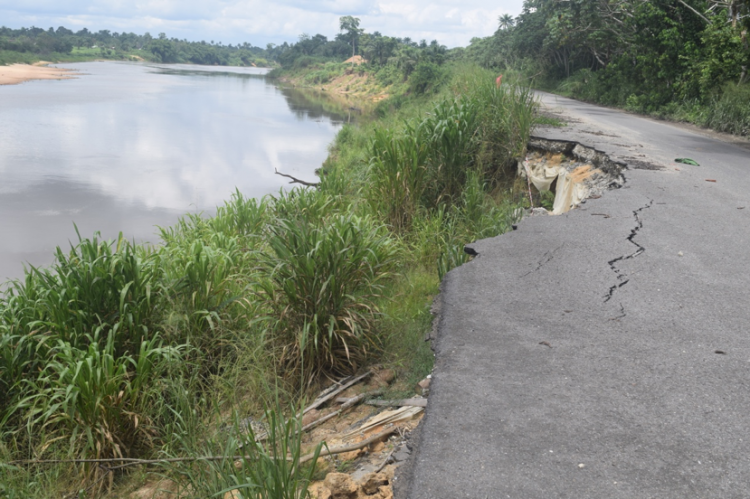
In the year 2012 Nigeria experienced one of the worst floodings in recent times. Towns and villages were submerged and helpless citizens sacked from their homes. Over 360 persons died as a result and about 2 million people were displaced by the floods that affected 32 states of the Nation[1]. Since then flooding in Nigeria has almost become an annual occurrence with varied degree of destruction of lives and properties depending on the level of the floods in the particular year.
The Nigerian Metrological Agency (NiMet) usually comes up with predictions of possible flooding each year before the rains set in. This is meant to alert citizens and the relevant agencies of government to take proactive steps to curb or reduce the effects of the flooding. But rather than put the necessary measures in place “while the sun shines” to prevent or mitigate losses, the federal, states and local governments choose to wait for the rainy days and subject the people to the inevitability of the eventuality of nature. Nature in its bad day blows no man any good and the regurgitation of the excess volume of water leaves in its wake sad and painful tales. Unfortunately, the few signs of the presence of any government are the usual palliatives of a few food items, drugs and effectual which, in any case, get late to the victims.
In 2021, Social Action continued with its yearly visit to communities in Rives State affected by the ravaging waters and based on its findings reported that government needs to do much more to prevent the effect of flood in these communities which are mainly oil-producing and oil-bearing communities. Recommendations that reflects the suggestions from the communities were published and made known to the authorities with a view to making preparation before the next rainy (flooding) season.
Figure 1 A totally submerged community in Onelga by the 2020 floods
In view of the above and for the purpose of prompting the proactive actions of the relevant government and other agencies with the aim of seeking short- and long-term solutions to the problems of flooding, a pre-flood/disaster assessment visit was carried out by Social Action team. This visit was also to sensitize the citizens, in response to the Nigerian Meteorological Agency’s (NiMet) prediction that some parts of the country may experience food shortages caused by drought in some areas in the country and flooding in some others[2]. This prediction seems to be troubling because of the projected impact on food inflation which already stands at almost 23%.
The locations visited by the team include Ogba Egbema Ndoni, particularly the Okwuzi Community, Aggah Community, and parts of Omoku. In Ahoada West local government area, the team also visited Mbiama and Akinima Communities, Joinkrama and parts of Abua Odua LGA. Others were Rukporku and Nkpolu Communities in Obio Akpor LGA.
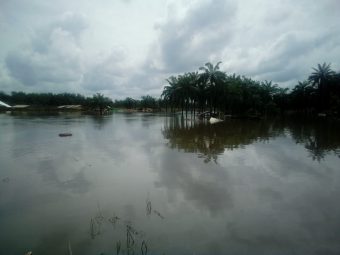 Figure 2 Image of the landscape of Okwuzi during the flood Figure 2 Image of the landscape of Okwuzi during the flood |
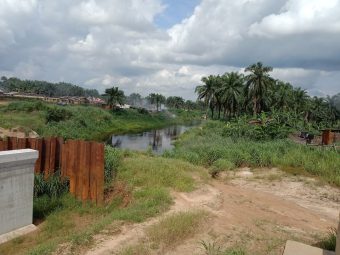 Figure 3 the same location after the flood Figure 3 the same location after the flood
|
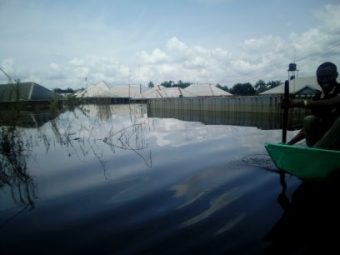 Figure 4 Community during the flood Figure 4 Community during the flood
|
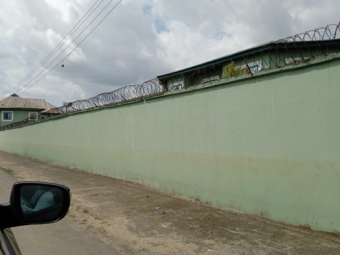 Figure 5 The same location after the flood. Figure 5 The same location after the flood.
|
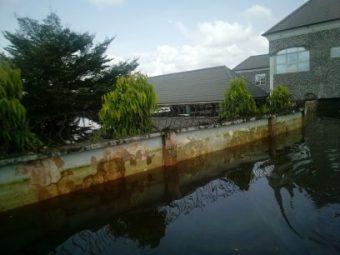 Figure 6 Submerged Buildings during the flood Figure 6 Submerged Buildings during the flood
|
 Figure 7 The same buildings after the flood Figure 7 The same buildings after the flood
|
OBSERVATIONS/FINDINGS
The following observations were made during our visit
- In all the communities visited, there has been no presence of government or its agencies to take stock of the loss of livelihood, farm crops, destroyed houses etc from previous floods ing. According to Chief Desmond Osuoka of Akinima “We have not seen the presence of any government agency since the last flood except for the few packs of indomie (noodles) that NEMA distributed towards the end of the floods” The same was the account of the other respondents interviewed by the team. “The only time we have any promise from the government was in 2018 when the Vice President came and promised that the federal government will dredge the River Niger. We believed him and were very happy because, we thought, coming from a highly places personality in the Federal Government, a solution had finally come our way but now we know better” Chief J. P. Mazi from Odawu Joinkrama bemoaned
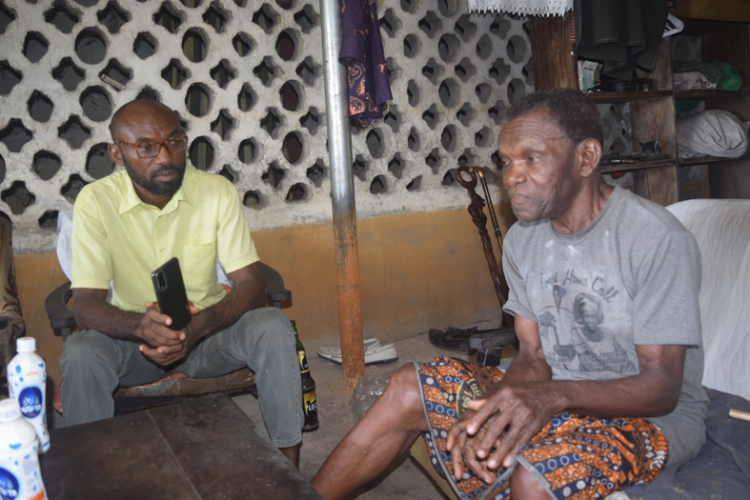
- Villagers are already making plans to pack out of their communities as this is the only option available to them in the face of the coming flooding.
The team met with some women interviewed last year at the thick of the disaster, who were sacked from their homes by the flood. Mrs Joy Enoch, who spoke to the team said she has already rented a small apartment away from the flood-ravaged area and would be moving her belongings by the end of August to prevent the kind of losses she incurred last year.
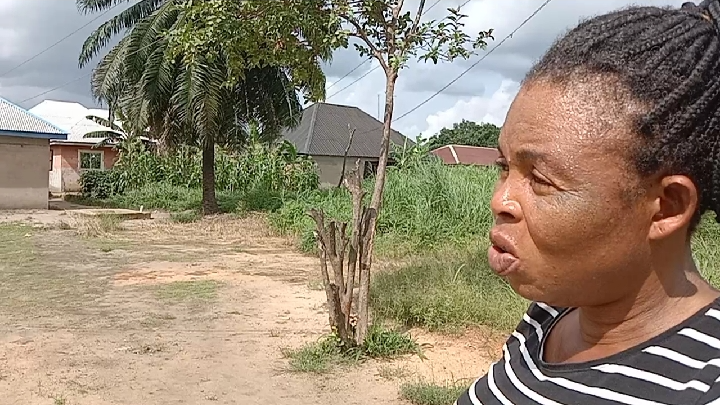
- Many families have moved away from their homes while some houses have collapsed due to the floods. Some new building constructions observed are made on concrete platforms about 9ft from the ground in anticipation of the floods
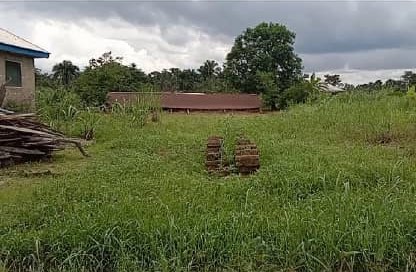 Figure 10 Building ‘sunk’ by the flood in Odawu Joinkrama Figure 10 Building ‘sunk’ by the flood in Odawu Joinkrama
|
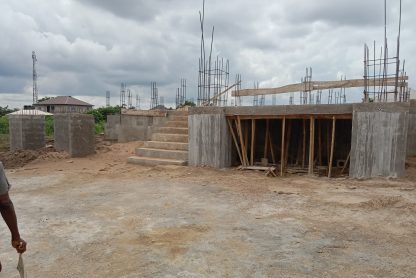 Figure 11 A building under construction in Odawu Joinkrama, raised 9 ft above its foundation to overcome the floods Figure 11 A building under construction in Odawu Joinkrama, raised 9 ft above its foundation to overcome the floods |
- The road leading to Joinkrama from Akinima has been eroded by the last flood and poses a great danger to commuters on that road. If no remediation is done before the next flood, the road may be completely abraded and the Joinkrama community would be cut off from Akinima, the local government headquarters, by road.

- The people have lost faith in the government’s ability to take any positive actions towards preventing the recurrence of the disaster that has become an annual affair. Most of the community people interviewed expressed their disappointment with the way the government handles issues of emergency nature. Pastor Dandy Gbewa recalled with a bitter nostalgia that “Government have a way of adding political colouration to everything. In 2012 we made several efforts, in vain, to get the local government to come to the aid of our people. It wasn’t until they realised that we have gone forward to act without them that they waded in towards the end of the flood. They infiltrated the committee with their party members and at some points food and other items realised were seen in the open market.”
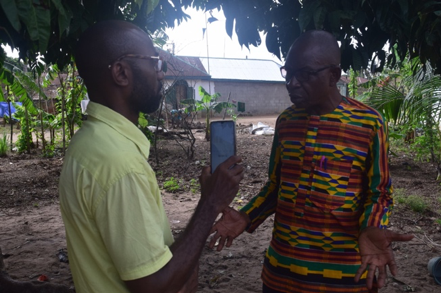 Figure 13 Many of the provisions realised for the deployment to the temporary camp for the displaced persons were found in open markets – Pastor Dandy Figure 13 Many of the provisions realised for the deployment to the temporary camp for the displaced persons were found in open markets – Pastor Dandy |
Figure 14 Primary School used for temporary shelter for the displaced in 2012, can still be prepared for use ahead of the floods – Pastor Dandy |
- The communities all agree on the point that problem is beyond the communities and need the help of the government. Eze Akuba of Okwuzi posed a question back to the team when asked what the communities are doing or will do to avert the kind of devastation they faced last year- “What do you think we can do? This is not a case of clearing drainages, otherwise, we would have mobilised to do so. This is excess volume of water coming all the way from the River Niger. It is beyond us”
Figure 14 The Team with Eze Akuba of Okwuzi and Chairman Council of Chiefs of Okwisi Community
RECOMMENDATIONS TO GOVERNMENT BY THE COMMUNITIES
To avert future occurrences of the colossal loss of properties and lives, the communities recommended the following short and long-term measures.
- The federal or state government needs to consider the dredging of the Orashi River. This will not only avert the emergency issues of flooding but will create massive job opportunity for the youth.
- Government should take stock of properties and other belonging lost during the flood and provision made to subside the loss of victims
- Effective sensitisation should be carried out to let communities know what to do in the event of flooding
- Emergency camps should be created and equipped to cater for victims in the course of any flood outbreak.
- Provision should be made for drinking water, medicines and food- that mostly requires no refrigeration or cooking
- The Vice President should make good his promise to dredge the River Niger. This would open up the water bed to absorb more water and prevent floodings. This is among other huge economic and social benefits accruable from the project
- If possible, the government should relocate the affected communities who are ready and so wish to relocate to higher grounds from sea level and embark on massive sand filling on the low flood-prone areas.
- The government should construct embankment and shore protection to reduce the effects of flooding in the affected communities.
[1] http://www.bbc.com/news/world-africa-20221451
[2] https://dailytrust.com/floods-longer-dry-spell-imminent-in-2021-nimet-report

